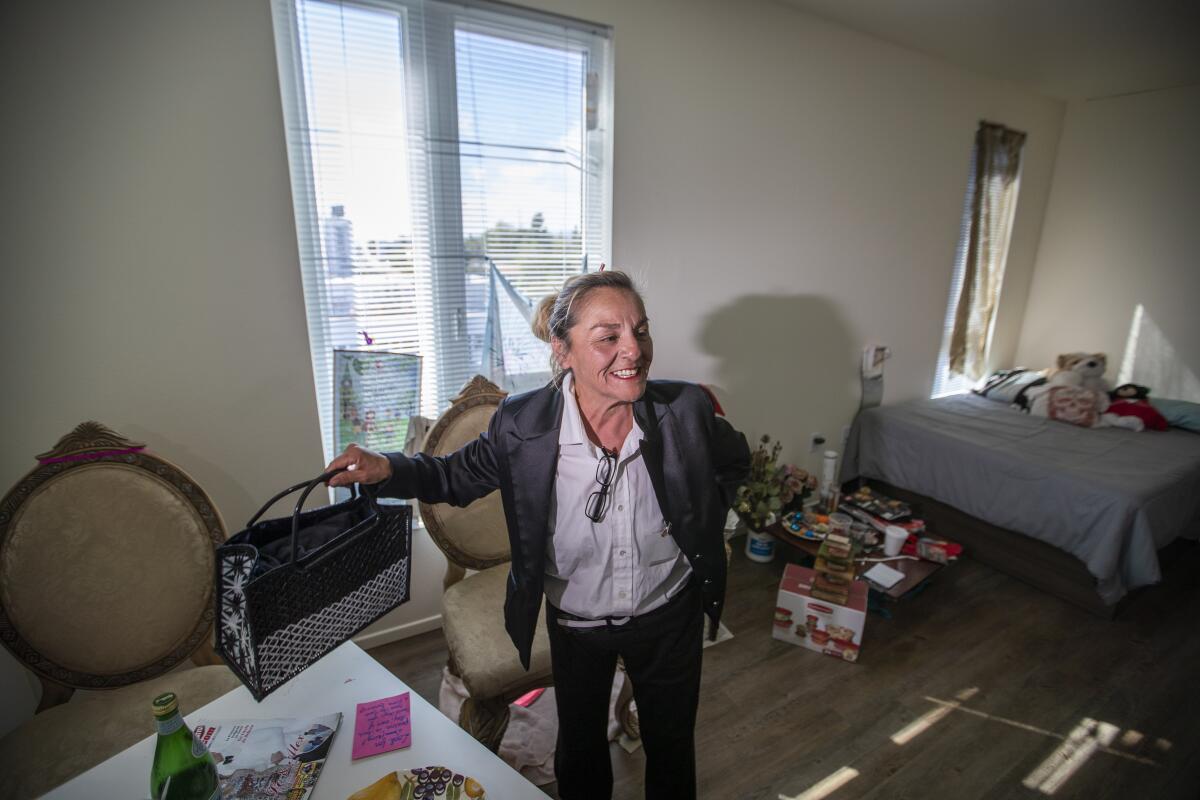How Gavin Newsom can stop NIMBYs from blocking homeless housing projects

- Share via
There are plenty of hurdles in the process of building housing for homeless people in the city of Los Angeles. Developers have to find the land, secure various sources of financing — because funding from the city or state is just part of the equation — and placate neighborhood groups nervous about what it means to have homeless people living in apartment buildings nearby. But one thing developers shouldn’t be forced to do is sink time and money into preparing a colossal environmental impact report when one isn’t necessary.
The sweeping California Environmental Quality Act requires state and local agencies to identify whether proposed developments would have significant environmental impacts. If not, the projects can proceed with just that initial environmental study. But if there are significant impacts, the developer would have to prepare a full-blown environmental impact report and outline plans to mitigate those impacts sufficiently.
Of course we want rules for development that protect the environment as well as the residents in and around the projects being built. But CEQA can oscillate from protector to cudgel in the hands of people who oppose a project for competitive or NIMBY reasons. Too often, opponents of homeless housing projects in their neighborhoods use CEQA as a weapon to thwart those developments.
After a city agency has signed off on a project’s initial environmental study, opponents sometimes file lawsuits contesting the city’s approval and arguing that the project’s developers should have to conduct a full environmental impact report — which can add a year or more to the project timeline as the developer answers such concerns as traffic, parking and noise impacts, endangering the developer’s financial commitments and the development itself. And that’s the real point of these lawsuits.
A recently passed state measure, Assembly Bill 1197, would eliminate that sort of legal attack by exempting from CEQA any supportive housing project or shelter for homeless people built in Los Angeles using city, county or state funds. The measure — written by Assemblyman Miguel Santiago (D-Los Angeles), whose district includes skid row — would apply only to the city of Los Angeles and would sunset in 2025. We desperately need to speed up the construction of this housing. This is one way to do that.
AB 1197 would not allow projects to run roughshod over residents’ legitimate concerns about safety or the local environment, mainly because it wouldn’t touch any of the other state regulations and local ordinances governing development. Any homeless housing project would still have to meet city and state building standards. Any developers receiving HHH funding would still have to share their plans with the community and listen to concerns. All developers would still have to analyze their building sites for potential environmental threats, such as earthquake faults and soil contamination. Where a threat is found (an abandoned oil well underground, for example), the developer would still have to lay out a plan for mitigating the problem, and the city’s department of building and safety would still have to sign off on it before building permits are issued.
Santiago’s bill is similar to others the Legislature has adopted in recent years to grant CEQA exemptions for certain types of housing projects near transit stops and in cities that have not met regional housing needs. And nothing in his bill would exempt developers from land use restrictions and approvals that must be obtained. You couldn’t suddenly build a multi-unit development in a single-family residential one. Planning and zoning rules would still have to be observed. Restrictions on how densely a developer can build would still have to be followed — or permission to vary from those standards would still have to be sought from the city.
The only thing the bill would do is exempt these projects, along with any move by the city to provide land for them, from CEQA review — which means that an opponent would have no legal basis to file a lawsuit challenging the city’s decision not to require a full environmental impact report.
This bill is focused on taking away a tool that has been wielded to obstruct housing for homeless people. The governor should sign it into law as soon as possible.
More to Read
A cure for the common opinion
Get thought-provoking perspectives with our weekly newsletter.
You may occasionally receive promotional content from the Los Angeles Times.






